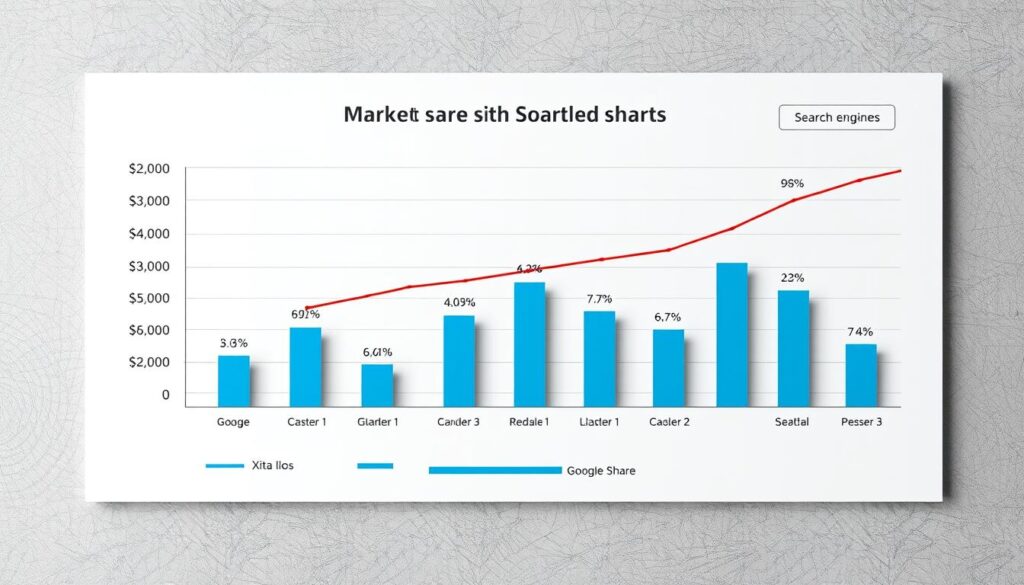When was the last time you explored beyond the usual tools to find information online? While Google dominates the digital landscape, a growing number of platforms now offer fresh ways to discover content. These options prioritize user privacy, specialized results, and unique approaches to organizing data.
Many of these tools deliver outcomes comparable to what you’d expect from traditional sources. However, they often use different methods to index websites or prioritize ethical practices. For example, some focus on reducing ads, while others emphasize environmental sustainability or community-driven curation.
Modern innovations blend personalized experiences with robust privacy protections. Whether you’re looking for niche topics or want to avoid tracking cookies, these platforms adapt to diverse needs. They also challenge the idea that one-size-fits-all solutions work best for everyone.
This article explores how these evolving tools reshape how we interact with online content. You’ll learn how they balance quality, customization, and transparency—and why expanding your toolkit matters in today’s digital world.
Key Takeaways
- Options beyond mainstream platforms offer enhanced privacy and specialized content discovery
- Many alternatives match the reliability of conventional results through unique indexing strategies
- Ethical practices like ad-free browsing or eco-friendly operations differentiate newer tools
- Personalization features coexist with strict data protection measures in modern solutions
- Diversifying your online search methods can improve both efficiency and digital safety
Exploring the Landscape of Search Engines Beyond Google
Digital trust is shifting as users question why their search history becomes a commodity. Nearly 40% of Americans now actively limit data collection by switching platforms, according to recent Pew Research data. This behavioral change creates space for tools that prioritize transparency over convenience.
Why Default Settings No Longer Satisfy
Many feel trapped by pre-installed options that track every click. Brave Search, for example, blocks hidden ads and cross-site cookies by default. Unlike traditional models, it builds results independently—no borrowed algorithms from larger rivals.
New Priorities Reshape Online Habits
People want curated outcomes that respect their boundaries. DuckDuckGo’s anonymous browsing mode and Startpage’s proxy-based results prove privacy doesn’t require sacrificing quality. These platforms filter content based on user preferences, not advertiser demands.
| Feature | Google Search | Brave Search | DuckDuckGo |
|---|---|---|---|
| Ad Tracking | Extensive | Blocked | Blocked |
| Data Storage | Permanent | 24 Hours | None |
| Result Sources | Proprietary | Independent Index | Multiple APIs |
This evolution reflects deeper tech literacy. Users understand their choices impact market diversity and innovation. As one developer noted: “When tools compete on ethics rather than defaults, everyone wins.”
The Evolution of Search: From Early Portals to Modern Engines
The 1990s web looked nothing like today’s dynamic landscape. Early platforms like Yahoo and AOL organized sites into human-curated directories—a far cry from instant answers. This manual approach couldn’t scale as the internet grew, paving the way for algorithmic tools that crawled pages automatically.
Historical Roots and Competitor Beginnings
Microsoft’s 2009 launch of Bing marked a turning point. Unlike predecessors, it integrated visual features and social media data into results. This innovation pressured rivals to refine their algorithms, creating space for niche players. One developer recalled: “We saw gaps in how platforms handled user intent—opportunities to do better.”

Shifting Trends and Market Dynamics
By the 2010s, concerns about data misuse reshaped priorities. DuckDuckGo gained traction by refusing to track queries—a stark contrast to traditional models. This privacy-focused search approach proved users didn’t need to trade personal details for quality outcomes.
Modern tools now balance speed with ethical practices. Bing’s AI-powered suggestions and DuckDuckGo’s tracker blockers show how competition drives improvement. As algorithms grew smarter, results became more accurate while respecting user boundaries.
Market shifts reveal a clear pattern: when established players innovate, newcomers respond with specialized solutions. This cycle keeps the digital ecosystem adaptable and user-centric.
Unlocking the Power of an alternative search engine for Privacy and Personalization
Imagine finding exactly what you need online without feeling watched. Platforms like DuckDuckGo and Startpage prove it’s possible to deliver tailored results while keeping your information secure. These solutions reject the “track now, ask later” approach, instead building trust through transparent practices.
How Privacy-Focused Engines Stand Out
Unlike traditional models, these tools avoid creating user profiles or storing IP addresses. DuckDuckGo’s anonymous browsing mode encrypts connections and blocks hidden trackers across websites. Startpage acts as a privacy shield, delivering Google results without revealing your identity to the tech giant.
Key differences emerge in data handling:
- No search history retention beyond 24 hours
- Automatic cookie deletion after sessions
- Zero third-party data sharing agreements
Personalization Without Invasive Tracking
Customization doesn’t require surrendering personal details. DuckDuckGo’s !bang shortcuts let users search specific sites directly—like “!w pizza” for Wikipedia entries. Startpage’s Anonymous View feature previews pages through secure proxies, preventing site tracking scripts from activating.
These platforms prove relevant results come from understanding context, not collecting intimate user data. As one developer noted: “True personalization respects boundaries while solving problems.” By prioritizing ethical features, they create safer digital spaces without compromising utility.
Innovative AI and Rich Media Features in Modern Search
The way we interact with online information is undergoing a dramatic shift. Advanced tools now blend artificial intelligence with multimedia elements to deliver faster, more engaging experiences. This evolution transforms simple queries into dynamic conversations with the web.
Integrating AI for Instant Answers
Platforms like Bing use AI to analyze millions of sources in real time. Their Copilot feature summarizes complex topics, providing bullet-point answers above traditional results. Brave Search takes this further, generating original explanations instead of linking to external content.
Enhanced Media and Rich Content Capabilities
Modern tools display video previews, image galleries, and live news updates directly in results. Bing’s visual search lets users snap a photo to find similar products or landmarks. Brave integrates podcast episodes and research papers for specialized searches.
| Platform | AI Features | Media Types | Personalization |
|---|---|---|---|
| Bing | Chat-style answers | Video/image grids | Interest-based filters |
| Brave | AI summaries | Podcasts/PDFs | Privacy-safe profiles |
| DuckDuckGo | Instant definitions | News timelines | Region-specific results |
These innovations save time while keeping users informed. As one engineer explained: “AI isn’t replacing traditional methods—it’s giving them superpowers.” The result? More meaningful connections between questions and solutions.
Privacy, Tracking Prevention, and Data Protection Strategies
Every online query leaves digital footprints—modern tools now erase them. Growing concerns about data misuse have reshaped how platforms handle personal information. Let’s examine how leading services balance usability with ironclad privacy measures.

How Top Platforms Handle Your Data
DuckDuckGo operates on a strict no-log policy, deleting queries within hours. Startpage acts as a privacy shield, fetching Google results without revealing your identity. Brave Search builds its own index, avoiding reliance on other companies’ algorithms.
| Feature | DuckDuckGo | Startpage | Brave |
|---|---|---|---|
| Tracker Blocking | Full-site protection | Page-specific | Built-in browser tools |
| Data Retention | Partial (24hr) | None | Anonymous aggregates |
| Result Sources | 400+ partners | Google API | Independent index |
Real-World Risks Driving Change
Recent cases show why protection matters. A 2023 study found 78% of websites share query data with third parties. DuckDuckGo’s Global Privacy Control automatically opts users out of data sales. Brave blocks fingerprinting techniques that bypass traditional ad blockers.
These services prove privacy isn’t just for tech experts. As one security expert noted: “The best protection works quietly in the background.” With 63% of Americans worrying about online tracking (Pew Research), these tools turn concerns into practical solutions.
User Experience: Custom Tools and Specialized Search Options
Innovative platforms now blend functionality with purpose, creating interfaces that feel both intuitive and meaningful. These tools transform routine queries into tailored experiences while addressing broader user values.
Curated Content and Interface Innovations
Ecosia demonstrates how design choices can serve dual purposes. Its clean layout includes a real-time counter showing trees planted through user activity—over 180 million to date. This feature turns everyday searches into environmental actions without complicating the process.
Specialized options help users navigate niche interests effortlessly. Qwant’s music discovery mode organizes results by genre, release date, and regional popularity. Swisscows uses color-coded filters to highlight family-friendly content, proving customization doesn’t require complex settings.
Privacy-focused tools simplify tracking prevention. Searx lets users pick result sources through dropdown menus, combining multiple databases into one query. MetaGer’s anonymous proxy option automatically masks IP addresses during browsing sessions.
Key innovations include:
- Visual dashboards showing carbon offset stats (Ecosia)
- Drag-and-drop filters for academic research (BASE)
- One-click encryption toggles (Startpage)
These features prove that ethical choices and usability can coexist. As one designer noted: “Good interfaces don’t just look nice—they make values actionable.” With diverse options available, users control both their results and digital footprint.
Eco-Friendly and Socially Responsible Search Options
What if your daily web browsing could help fight climate change? Platforms like Ecosia turn routine queries into environmental action. By channeling ad revenue into tree planting, they’ve transformed over 180 million searches into thriving forests worldwide.

Turning Clicks Into Climate Solutions
Ecosia dedicates 80% of its profits to reforestation projects. Every 45 searches fund one new tree in regions like Brazil and Kenya. Users see real-time counters showing their personal impact alongside maps of active planting sites.
Visual tools make eco-conscious browsing engaging. The platform displays images of restored ecosystems and educational video content about biodiversity. Interactive maps let users explore reforestation progress across continents.
Key features helping people drive change:
- Transparent financial reports published monthly
- Solar-powered servers reducing carbon footprints
- Privacy protections matching industry leaders
Ecosia’s CEO notes: “We prove technology can heal ecosystems, not just extract data.” This approach resonates with 15 million active users who want their online habits to reflect environmental values. By blending familiar search functions with purpose-driven design, these platforms redefine what tools can achieve.
Comparing Market Shares and Performance Against Google
While one platform dominates 90% of global queries, competitors carve niches through specialized features. Recent StatCounter data shows Bing holding 3.4% market share and DuckDuckGo surpassing 1%—small numbers with rapid growth in privacy-conscious regions.

Statistics, Market Trends, and User Preferences
Google processes 8.5 billion daily queries, but alternatives gain traction where speed meets ethics. SimilarWeb reports 32% growth for DuckDuckGo among U.S. users aged 18-34, driven by default privacy settings and cookie-free browsing.
| Platform | Global Share | Key Strength | Index Size |
|---|---|---|---|
| 91.6% | Speed/Accuracy | 130B+ pages | |
| Bing | 3.2% | Visual Search | 40B pages |
| DuckDuckGo | 1.1% | Privacy Tools | 10B+ sources |
Different indexing models explain performance gaps. Google uses proprietary crawlers, while DuckDuckGo aggregates 400+ sources for balanced results. Bing combines AI with partnerships like Reddit for real-time community insights.
User priorities now split between convenience and control. A 2023 Pew Research study found 41% of Americans prioritize ethical practices over faster answers. This shift explains why niche platforms thrive despite smaller databases.
Each option serves distinct needs:
- Google excels for complex queries needing vast data
- Bing integrates seamlessly with Microsoft ecosystems
- DuckDuckGo protects identities across websites
“Market diversity forces innovation—no single solution fits all digital needs.”
Exploring Unique Global and Niche Search Offerings
Specialized platforms are redefining how we discover content online. These services focus on specific interests while protecting user identities, offering fresh approaches to common tasks. Let’s explore how they balance specialized results with ethical standards.
Differentiators in News, Music, and Web3 Searches
Yahoo News delivers real-time updates from 50+ trusted outlets. Unlike generic platforms, it lets users filter stories by credibility scores and political leanings—all without storing personal data. This approach appeals to informed readers who value context over clickbait.
Swisscows takes a unique way to handle music discovery. Its audio recognition tool identifies songs through humming or lyrics snippets. The platform never tracks listening habits, proving entertainment doesn’t require invasive profiling.
- Presearch rewards users with crypto tokens for Web3 queries
- Yahoo News offers bias-adjusted reporting filters
- Swisscows uses AI to match tunes from partial inputs
Despite their innovation, market share remains modest for these niche tools. Presearch serves 3 million monthly users—small compared to giants, but growing steadily in blockchain communities. Swisscows attracts 800k music lovers monthly, showing specialized services can thrive.
| Platform | Focus | User Base | Data Policy |
|---|---|---|---|
| Yahoo News | Current Events | 12M/month | Anonymized clicks |
| Swisscows | Music/Audio | 800k/month | Zero tracking |
| Presearch | Web3/DApps | 3M/month | Decentralized storage |
These examples show how tailored experiences create loyal followings. As one Presearch user noted: “I get blockchain results faster here than anywhere else—plus control over my personal data.” While market share gaps exist, these tools prove quality often beats quantity in specialized fields.
Conclusion
Your online choices shape more than just results—they influence digital innovation. Modern tools prove you can get precise answers without invasive tracking, blending quality with ethical practices. Platforms like DuckDuckGo and Startpage deliver tailored outcomes while keeping your personal information strictly protected.
These solutions prioritize transparency, letting you control what happens to your user data. Whether avoiding ads or supporting eco-initiatives like Ecosia’s tree planting, diverse options cater to unique priorities. You’ll find features like anonymous browsing and instant answers that respect your boundaries.
The key takeaway? A better search experience doesn’t require surrendering privacy. From encrypted queries to visual discovery tools, services now offer results without compromising security or speed. Every click becomes a vote for how technology should evolve.
Ready to redefine how you interact with the web? Explore these forward-thinking platforms—your habits might just spark broader change in how we all navigate information.
